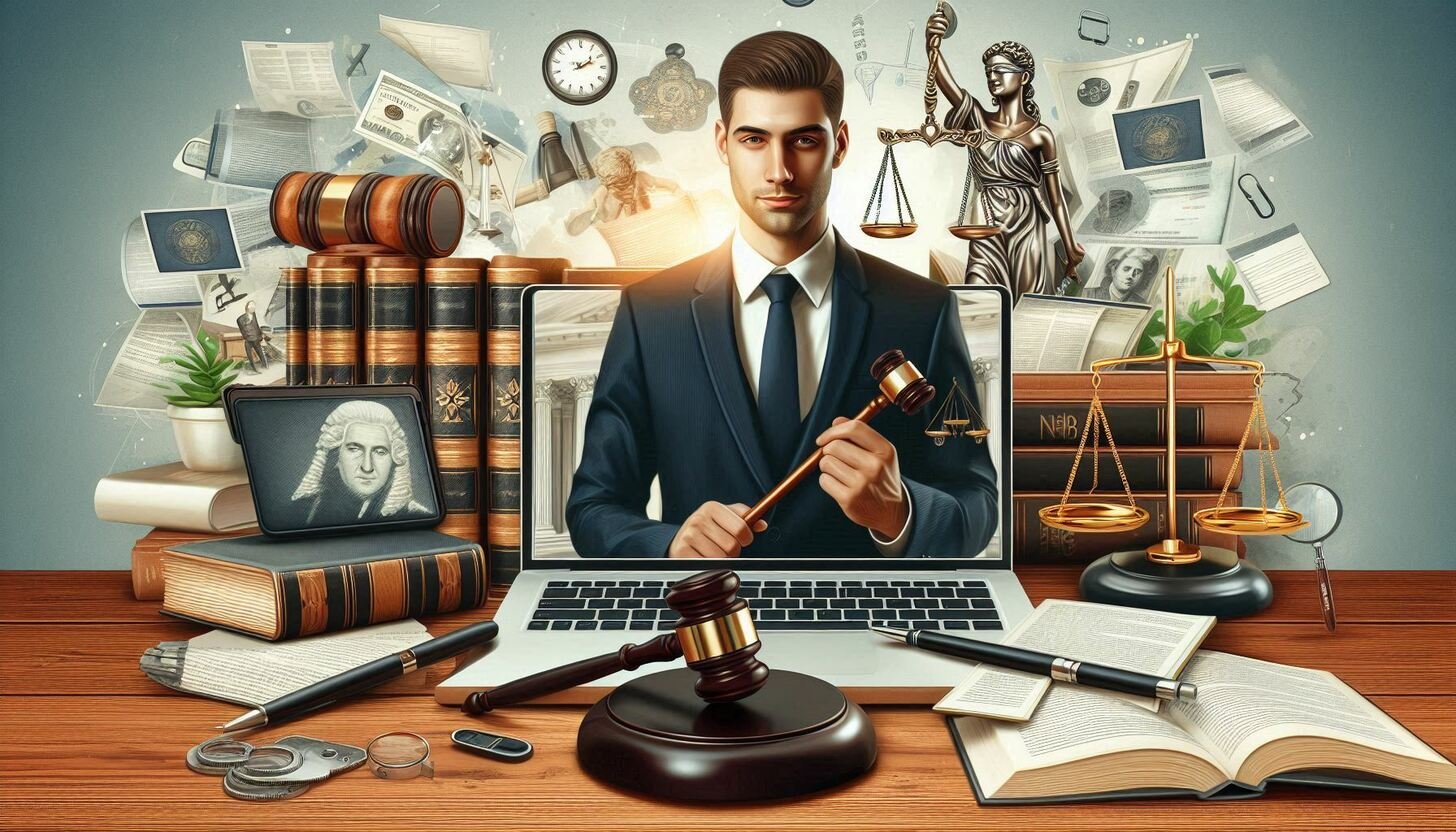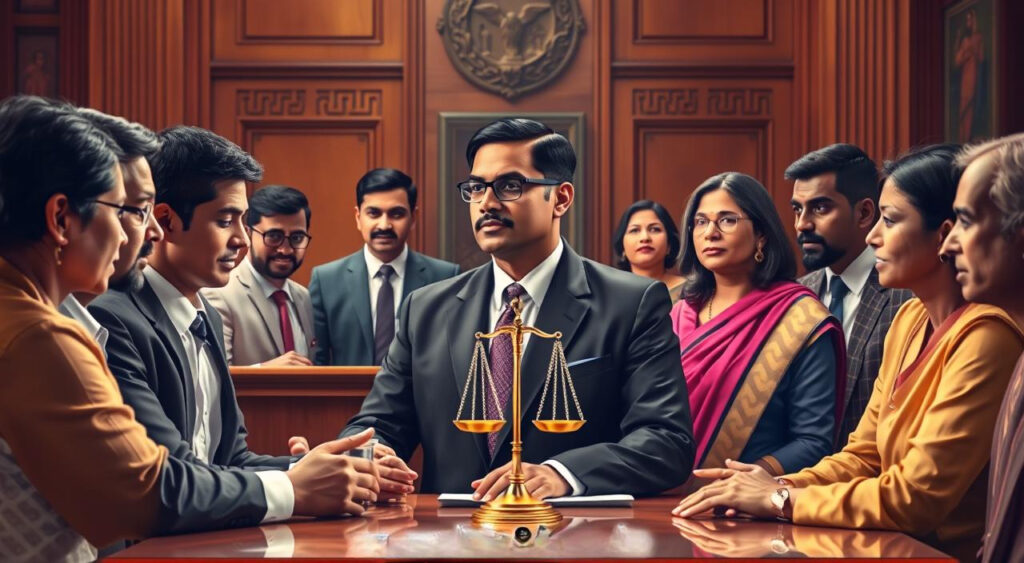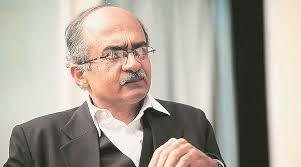Trending

A country’s legal system is always its backbone in protecting justice, equality, and order. However, it is the complex and specialized nature of this system that makes it unapproachable for a normal individual. It is where advocates come in to break this barrier between the judiciary system and the people by being an approachable source of understanding and making law actionable for people to implement. Advocates are more than courtroom representatives; they are law interpreters, rights champions, and catalysts for justice. They stand as the bridge that brings together the intimidating world of law and common people, transforming a lofty ideal into something real. This blog talks about how advocates fulfill their very important role, how they affect society, and the challenges they face in doing their work.
Advocacy, an old profession, has historically developed with legal systems from countries all over the world.
– In ancient Greece, public forums were used by orators such as Demosthenes to argue cases for others.
– In Rome, the role of advocates became formalized; they worked as legal advisors and acted as representatives in court.
Advocacy emerged in feudal times in Europe, when professionalised individuals started arguing cases in courts on behalf of clients.
– The Magna Carta of 1215 laid the foundation for a structured legal system and advocacy as a profession.
– Ancient Indian legal systems were based on Dharma Shastras, where learned scholars interpreted laws.
– During the Mughal era, qazis played the role of legal advisors.
With British colonists comes the modern advocacy in India-the practice of forming courts and legal practices in particular.
Advocates play a multidimensional role that transcends litigation. They translate complicated legalese for their clients, offer sound advice, and ensure that justice prevails for all. Representing individuals, corporations, or marginalized communities, advocates attempt to uphold the rule of law and safeguard right

Advocates represent a client in a case litigating before the court on his behalf.They provide evidence, argue cases, and obtain fair judgments.
They advise people on the intricacies of law relating to property disputes, family laws, and corporate laws. Their advisory will ensure that individuals and organizations act within the four corners of the law.
Advocates often act as mediators between conflicting parties to arrive at an amicable settlement. The main attribute required for a litigator in the settlement of disputes beyond the court room is negotiation ability.
They have vital functions in ensuring the rule of law and justice prevails. Many lawyers act pro bono in most of the cases involving minority groups.
Legal documents and statutes are usually written in complex language, making them hard to understand for non-legal people. Advocates make these texts simple, explaining legal rights and obligations in simple, understandable terms. This role is very important in enabling people to make informed decisions and exercise their rights with confidence.
Advocates defend their clients’ cases before the courts whether criminal, civil, or corporate. They argue in court to ensure fair trial and uphold justice principles. With their skill in interpreting laws and the use of precedents, the citizens are given competent defense.
A very important part of advocacy is creating awareness about the legal rights and duties of citizens. Advocates offer workshops, seminars, and campaigns to make citizens familiar with the laws that can affect their daily lives: consumer rights, environmental laws, and workplace safety norms.
Advocates often support the vulnerable and marginalized voices in the system, ensuring that the system does not miss them.
“Advocates are the guardians of justice, ensuring that the scales of the law are balanced and that the voices of the people are heard.”

Advocates undertake transformative efforts through legal literacy and public education initiatives to narrow the knowledge gap between law and people. Through demystifying principles of the law and rights, advocates encourage individuals to explore the legal system with confidence and aggressively demand their rights. Such initiatives may be aimed at underprivileged communities, students, or professionals by the holding of workshops, seminars, and other campaigns.
Advocates address important issues like consumer rights, protection at work place, women’s rights, and environmental laws, hence making the legal framework accessible. PILs and awareness drives also bring to the fore societal issues, stimulate civic participation, and policy reform. Legal literacy also emphasizes educating the citizens on basic legal procedures, mechanisms for the resolution of disputes as well as remedies available in law, promoting a culture of legal awareness and responsibility. These efforts have been further amplified through digital platforms such as blogs, webinars, and social media to reach a larger audience with the right and timely legal information. Initiatives of advocates not only reduce the power imbalance in society due to ignorance but also build a legally aware populace who can maintain democratic values. The advocate empowers citizens through such knowledge, which means having a society where law does not seem to be this distance alien but an approachable protector.
Advocates are agents of social change. Great legal minds like Mahatma Gandhi and Dr. B.R. Ambedkar have applied their knowledge to bring about revolutionary social changes. Their work shows the power of the profession to challenge inequality and injustice. Some examples of advocates are as follows:
1. Dr. B. R. Ambedkar : Champion of Social Justice
– As the architect of the Indian Constitution, Dr. Ambedkar provided in this very document with various provisions regarding caste bias by banning the practice of untouchability (Article 17).

– For labour rights and women’s equality along with empowerment for deprived groups of society.
– Initiated reforms in Hindu personal law through the Hindu Code Bill to guarantee gender justice relating to inheritance, marriage, and property.
– He formed a basis for social justice in India that catalyzed movements and experiences for equality and legal empowerment of the oppressed.

2. Justice M.C. Chagla – Social Reformer Advocate
– Advocated secular, accessible education as part of nation-building.
– Fought for the freedom of individuals and democracy; opposed authoritarianism
– the first Chief Justice of Bombay High Court in India, who ensured judicial integrity and independence.
– Some excellent essays on constitutionalism and civil liberties.
– Trust building in judiciary as the savior of rights.
– Inspirations to legal as well as social reformists for equalities
– Democratic values strengthen up since the judiciaries resented all abuses in Emergency ERA
– Left a legacy of ethics to jurisprudence and public services.
3. Fali S. Nariman: Defender of Constitutional Freedoms:
– Represented cases that upheld freedom of speech, religious rights, and environmental protections.
– Argued in S.R. Bommai v. Union of India, which reinforced the secular fabric of the Indian Constitution.

– Advocated judicial accountability and fair governance.
– Nariman’s jurisprudence has given strength to India’s democracy, as has been seen in his upholding of constitutional values and rights of citizens, including civil liberties.

4. Justice Leila Seth: Women’s and Children’s Rights Lawyer:
– The first woman Chief Justice of a High Court in India, Leila Seth worked extensively on laws related to children and women.
– Contributed to reforms in family law to ensure women’s rights in inheritance and marriage.
– Was part of the committee that recommended changes to juvenile justice laws.
– Her efforts have furthered the cause of legal protection for women and children, opening doors to more inclusive legislation.
5. M.C. Mehta: Environmental Activist:
– He is considered the father of environmental litigation in India, and has filed numerous Public Interest Litigations (PILs).
– Mehta’s advocacy brings environmental issues to the fore with sustainable development and greater accountability.

– Some landmark cases are:
Ganga Pollution Case: Compelling industries to curtail water pollution from Ganga River.
Taj Mahal Pollution Case: Compelling regulations that should be adopted so as to protect the Taj Mahal from environmental degradation.
Vehicular Pollution Case: Providing an alternative of compressed natural gas (CNG) as an option to reduce air pollution in Delhi

6. Prashant Bhushan: Cause Representative and voice on Public Accountability and Transparency :
– He is very actively involved in cases relating to corruption and governance, such as the 2G spectrum scam and coal block allocation cases. He is a proponent of judicial accountability and transparency. He often takes up cases to curb misuse of power by public officials.
– His advocacy has strengthened the accountability of government institutions and promoted a culture of transparency.
The profession of advocacy has been changing with rapid strides in the 21st century. Processes of the courts have now become increasingly digitalized, with virtual hearings and the extensive use of technology for legal research. However, while increasing efficiency, these changes also introduce challenges around data security and confidentiality, as well as equitable access to technology. Advocates face a lot of challenges in their pursuit of justice such as:
Backlog of Cases: The many pending cases strain their workload.
Access to Resources: Limited access to updated legal resources hampers effective representation.
Client Trust: Misconceptions about the legal system often lead to mistrust of advocates.
Stress and Overworking: The job is quite strenuous. In fact, it leads to burnout.
Advocates no longer confine themselves in the traditional courtrooms today. They perform a multifaceted role:
Corporate Law: Representation of companies on matters relating to compliance with regulations as well as management of contracts.
Human Rights: Advocacy for the rights of women, conservation issues, and children’s welfare.
Technology Law: Resolving legal issues in cybersecurity, data privacy, and intellectual property.
Advocates are essential to a functioning democracy. By bridging the gap between law and the people, they uphold the principles of justice, equality, and liberty. Their role is not only in courtrooms but influences society, policy, and governance. As custodians of the legal system, advocates exemplify the deep impact that law can make in life.

Adv. Abdul Mulla (Mob. No. 937 007 2022) is a seasoned legal professional with over 18 years of experience in advocacy, specializing in diverse areas of law, including Real Estate and Property Law, Matrimonial and Divorce Matters, Litigation and Dispute Resolution, and Will and Succession Planning. read more….
Copyright BlazeThemes. 2025